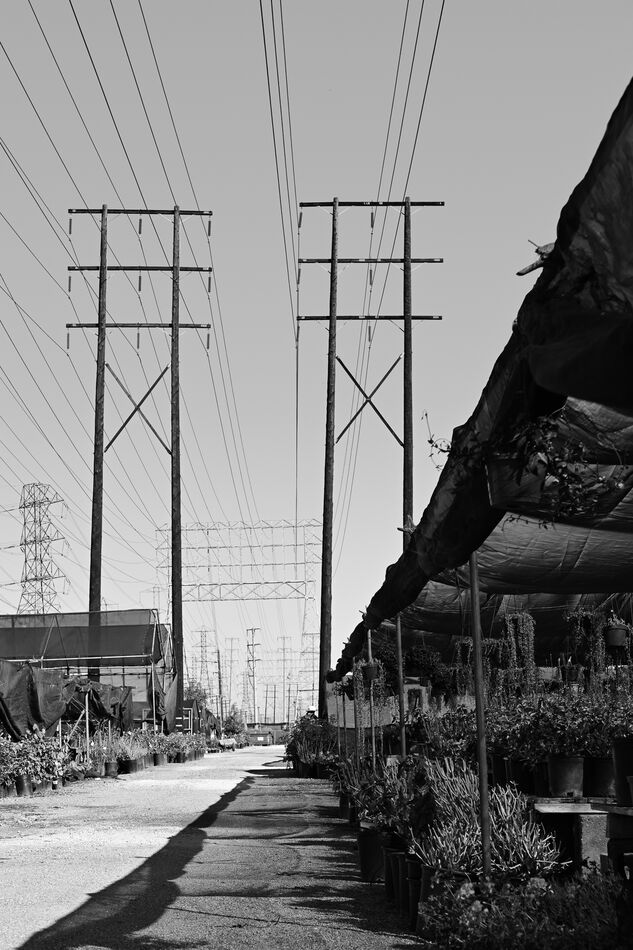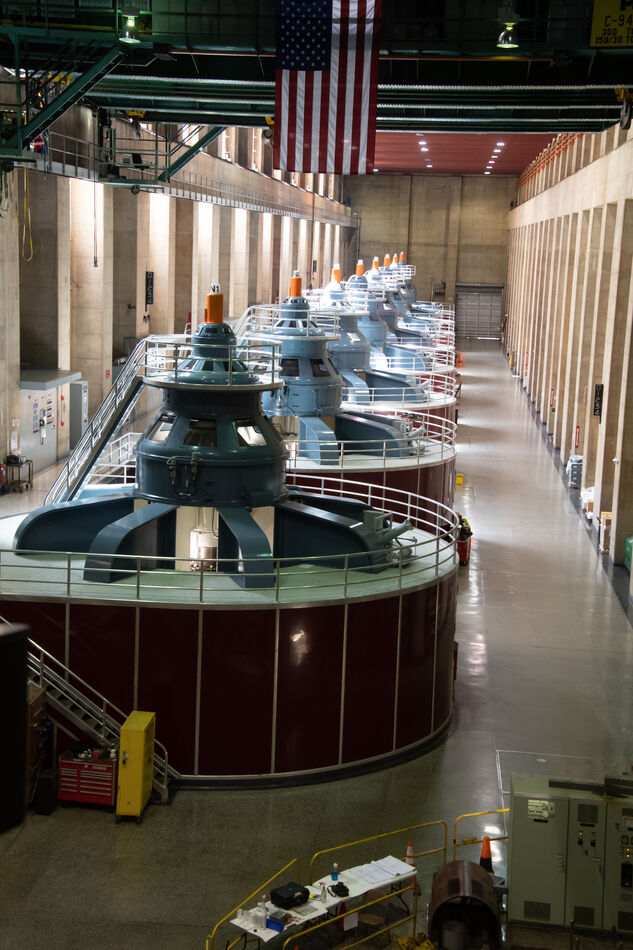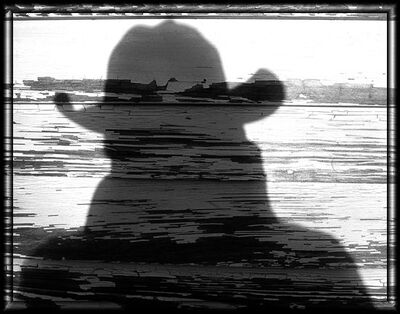Photography Inside a Hydroelectric Dam
Oct 21, 2022 13:04:36 #
Hip Coyote wrote:
To avoid problems I suggest having a flux capacitor attached to the camera. I often do that to prevent electrical problems.
Or beter yet: wrap the camera in tin foil.
It is important to cover all sides of the camera, specially the front element of the lens, to avoid radiation leakage.








Oct 21, 2022 13:12:09 #
R.G. wrote:
I've seen a video where a camera was permanently damaged while making a video of an arc welder at work. Perhaps the damage was due to the prolonged exposure. Or perhaps it depends how good the UV filtering is in the lens or camera. Or perhaps the videographer just got too close. But the damage was real and obvious in the resulting video. It was in the parts of the image (and therefore on the parts of the sensor) that had prolonged exposure to the arc itself.
Arc welding is extremely bright.
I.e: for a TIG welding system set at 100A, the blue light radiance will be about 40 Wcm^-2.sr^01. What is worse yet: it will be concentrated on a hanful of pixels on the sensor... if the camera and the arc are completely still just for a couple of seconds, those pixels can reach easily over 100°C and fry.
Oct 21, 2022 13:17:02 #
jlg1000 wrote:
Arc welding is extremely bright.
I.e: for a TIG welding system set at 100A, the blue light radiance will be about 40 Wcm^-2.sr^01. What is worse yet: it will be concentrated on a hanful of pixels on the sensor... if the camera and the arc are completely still just for a couple of seconds, those pixels can reach easily over 100°C and fry.
I.e: for a TIG welding system set at 100A, the blue light radiance will be about 40 Wcm^-2.sr^01. What is worse yet: it will be concentrated on a hanful of pixels on the sensor... if the camera and the arc are completely still just for a couple of seconds, those pixels can reach easily over 100°C and fry.
Similar effect with lasers in laser shows? They'll destroy the sensor also.
Oct 21, 2022 13:29:30 #
skylinefirepest
Loc: Southern Pines, N.C.
I took a slew of pics while inside Hoover...no problems and great shots...and the millions upon millions of tons of water just a few feet away didn't bother me at all.........much!! This is all while the seepage is running past you, of course.
Oct 21, 2022 13:52:12 #
Retina
Loc: Near Charleston,SC
Jack 13088 wrote:
Back in the day we called those antennas. But another example of - size matters!
I figured most people here are old enough to remember antennas. Thanks. I still use them because I'm too cheap to get a subscription. My post didn't mention this, but I did get a mild shock once walking near a transmission line. I just think a camera could not be hurt from stray fields unless someone deliberately tried to make it happen. Inside a power plant where visitors are allowed to walk, the fields would be much weaker than near widely separated high tension lines.
Oct 21, 2022 14:30:56 #
saxman71 wrote:
Some time back I heard you should not use your DSLR under high voltage power lines in that such use could damage the camera. I never knew if that was a true statement but have avoided doing so none-the-less. I have an opportunity next week to tour the inside of a hydroelectric dam and want to bring my Nikon D810 on the tour. The tour guide said not to worry. They haven't "fried any cameras yet". I want to believe him. Does anyone have any knowledgeable information this subject?
Areas of high electric field strength can cause induced currents in electronics. For example, I have seen digital cameras go black when users are trying to photograph a Tesla Coil in operation from 10 meters away. I believe power cycling outside of the area, resolved the issues. In that same area when holding up a 1 36" flourscent tube it will light. But were are talking HIGH E-field strengths. Over a mega-volt/meter near the tesla coil. You can feel the effect in the hairs on your arm 10 meters away.
You are not going to get anywhere even remotely close to that field strength, inside a damn, or even directly under High Voltage Transmission Towers.
Oct 21, 2022 14:38:18 #
Longshadow wrote:
Similar effect with lasers in laser shows? They'll destroy the sensor also.
Yep. Extremely concentrated light.
Sign seen on a laser where I work: "Don't look into the laser with the remaining eye."
Oct 21, 2022 14:39:20 #
jlg1000 wrote:
Or beter yet: wrap the camera in tin foil. br br ... (show quote)
LOL. That solves multiple problems. But sure to wrap your underwear as well. You want to protect "the boys".
Oct 21, 2022 15:32:08 #
saxman71 wrote:
Some time back I heard you should not use your DSLR under high voltage power lines in that such use could damage the camera. I never knew if that was a true statement but have avoided doing so none-the-less. I have an opportunity next week to tour the inside of a hydroelectric dam and want to bring my Nikon D810 on the tour. The tour guide said not to worry. They haven't "fried any cameras yet". I want to believe him. Does anyone have any knowledgeable information this subject?
Take your camera and take photos. I worked in hydro plants and switchyards, up to 500kv for thirty years. I took all kinds of photos even of the generators, transformers, etc. No problems what do ever.
Oct 21, 2022 15:43:16 #
R.G. wrote:
I've seen a video where a camera was permanently damaged while making a video of an arc welder at work. Perhaps the damage was due to the prolonged exposure. Or perhaps it depends how good the UV filtering is in the lens or camera. Or perhaps the videographer just got too close. But the damage was real and obvious in the resulting video. It was in the parts of the image (and therefore on the parts of the sensor) that had prolonged exposure to the arc itself.
Same as photographing the sun with no fingers.
Oct 21, 2022 16:00:38 #
saxman71 wrote:
Some time back I heard you should not use your DSLR under high voltage power lines in that such use could damage the camera. I never knew if that was a true statement but have avoided doing so none-the-less. I have an opportunity next week to tour the inside of a hydroelectric dam and want to bring my Nikon D810 on the tour. The tour guide said not to worry. They haven't "fried any cameras yet". I want to believe him. Does anyone have any knowledgeable information this subject?
Hoover dam generator hall, 2018 (when there was still water behind the dam). Taken with my D5, which I've been using ever since without problems.
Oct 21, 2022 17:22:04 #
ecurb
Loc: Metro Chicago Area
saxman71 wrote:
Some time back I heard you should not use your DSLR under high voltage power lines in that such use could damage the camera. I never knew if that was a true statement but have avoided doing so none-the-less. I have an opportunity next week to tour the inside of a hydroelectric dam and want to bring my Nikon D810 on the tour. The tour guide said not to worry. They haven't "fried any cameras yet". I want to believe him. Does anyone have any knowledgeable information this subject?
I worked as a commercial, industrial, architectural photographer since the 1970s. I have shot power generation, switching yards and high tension power transmission lines using cameras from 8x10 film down to current digital cameras. No damage was done to either the film or the digital images by environmental electrical fields. The only damage ever done to me was getting my credit cards wiped by MRI magnetic fields when shooting medical machines.
Oct 21, 2022 17:39:13 #
ecurb
Loc: Metro Chicago Area
ecurb wrote:
I worked as a commercial, industrial, architectural photographer since the 1970s. I have shot power generation, switching yards and high tension power transmission lines using cameras from 8x10 film down to current digital cameras. No damage was done to either the film or the digital images by environmental electrical fields. The only damage ever done to me was getting my credit cards wiped by MRI magnetic fields when shooting medical machines.
At the airlock inside the dry well around the reactor core at the Ceder Rapids nuclear power plant, late 1970s.

Oct 21, 2022 18:19:04 #
campyboy1
Loc: vancouver Washington
saxman71 wrote:
Some time back I heard you should not use your DSLR under high voltage power lines in that such use could damage the camera. I never knew if that was a true statement but have avoided doing so none-the-less. I have an opportunity next week to tour the inside of a hydroelectric dam and want to bring my Nikon D810 on the tour. The tour guide said not to worry. They haven't "fried any cameras yet". I want to believe him. Does anyone have any knowledgeable information this subject?
Last year I took some pictures at Bonneville Dam with a Nikon D3300 camera with no problem.
Oct 21, 2022 18:26:12 #
saxman71 wrote:
Some time back I heard you should not use your DSLR under high voltage power lines in that such use could damage the camera. I never knew if that was a true statement but have avoided doing so none-the-less. I have an opportunity next week to tour the inside of a hydroelectric dam and want to bring my Nikon D810 on the tour. The tour guide said not to worry. They haven't "fried any cameras yet". I want to believe him. Does anyone have any knowledgeable information this subject?
Your lucky your camera didn't do any damage to the high voltage power lines. You could have been in real trouble!

---
If you want to reply, then register here. Registration is free and your account is created instantly, so you can post right away.






